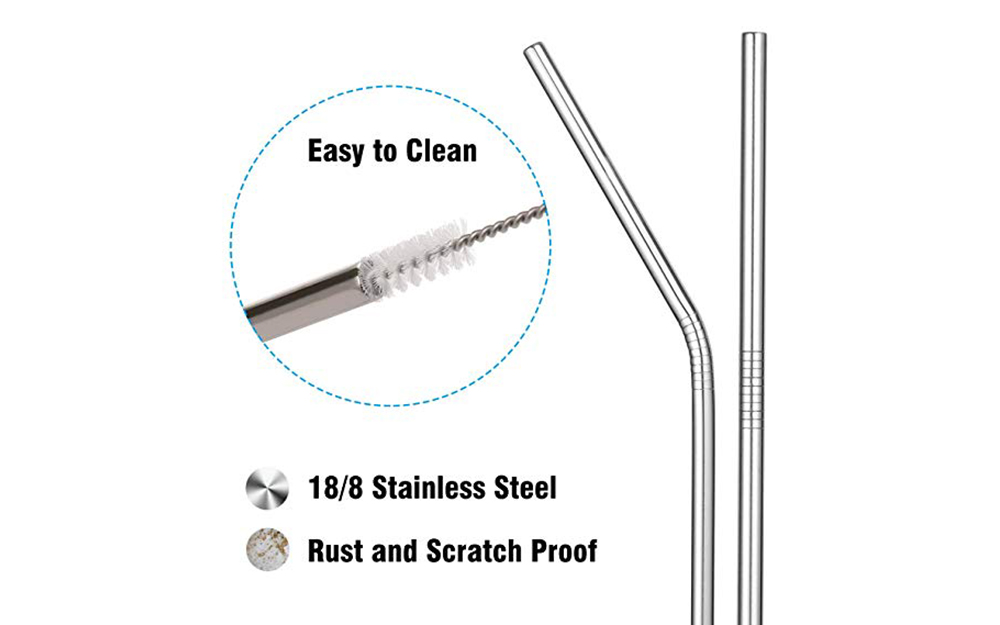
By Haddon Libby
Protecting the environment from single-use plastic straws has become all the rage. While images of sea turtles crippled by these straws generated enough public outrage to begin a movement toward paper or reusable straws, we hear very little in potential remedies related to a much larger plastic problem – the Great Pacific Garbage Patch; this plastic-laden garbage patch in the Pacific Ocean which is twice as big as the state of Texas. It is estimated that plastic straws make up 0.02% of the Great Garbage patch.
As these environmental problems are larger than most cities or states can reasonably impact, it stands to reason that environmentally-concerned folks want to make at least token gestures toward making the world a greener place.
In 2019, California will ban full-service restaurants from automatically giving customers plastic straws. Patrons will now have to ask for a straw unless they are buying fast food or takeout where plastic straws are allowed.
To the casual observer, it appears that state-level politicians are making this gesture on behalf of the environmentalists without changing anything. Locally, Cathedral City is following the lead of progressive cities like Seattle, Miami Beach, Berkeley and Provincetown by banning plastic straws altogether.
However well-intentioned the act of banning single-use plastic straws may be, the financial impact on small businesses is not insignificant. The Cathedral City ban weakens the finances of restaurants in that town which puts those businesses on disadvantaged footing as compared to eateries in Rancho Mirage, Palm Springs and Palm Desert where plastic straws are allowed. This additional cost works out to an annual cost of approximately $600 for every 100 drinks sold per day. While that may not sound like a lot, in an industry where it is difficult to pay workers a living wage while remaining profitable, any additional cost that cannot be passed on to a customer hurts. Sensitive to this concern, the city held a working session with local businesses to hear reasons why the plastic straw band should not passed into law.
Only one restaurant attended.
If you want to join the eco-friendly straw users, bring a reusable straw with you when you go out to eat. As making paper straws from recyclable materials is generally frowned upon for health reasons, the straw of choice amongst trend-setting environmentalists and the sipping elite is a metal straw. Metal straws of all shapes and colors can be purchased for about one dollar. Other types of reusable straws are made from glass, bamboo, silicone and BPA-free plastic. For the eco-friendly with more dollars than sense, Tiffany has a $375 straw.
The first straws made date back in 3,000 BC were gold tubes adorned with precious stones. These straws were made by the Sumerians of what is now southern Iraq for drinking tea.
Portugal and Argentina have used bombillas for hundreds of years when drinking mate tea. The bombilla is a straw and filter used to keep tea leaves out of the drinker’s mouth.
Here in the United States, straws made of hollowed ryegrass were all the rage in the 1800s. As the ryegrass would turn to mush and add a grassy flavor to many drinks, Marvin Stone, the owner of a paper cigarette holder manufacturer, created the paper straw in 1888. About seventy years later, plastic straws took the place of paper as it is cheaper and more durable.
While eliminating plastic straws is a nice feel good thing to do, changing all single-use packaging so that containers are either compostable or easily recyclable is where change is needed. Even with large fast food restaurants like McDonalds and Starbucks stating their intent to eliminate plastic straws over the next three to five years, the elimination of plastic straws is a token effort that does little to reduce waste polluting the world.
Haddon Libby is the Founder and Managing Partner of Winslow Drake Investment Management and can be reached at HLibby@WinslowDrake.com. For more information on this Investment Fiduciary firm, please visit www.WinslowDrake.com.








































